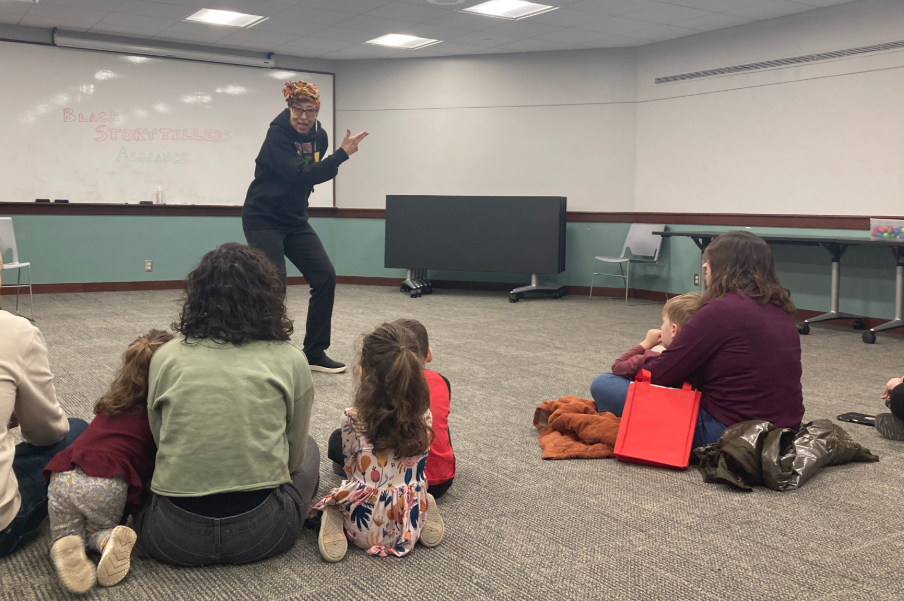Faculty at the University of Minnesota are investigating whether a delayed Medical School fellowship violated academic freedom – the latest response to ongoing controversy surrounding the reproductive health training, which would have included abortion procedures.
Several members of the Academic Freedom and Tenure Committee expressed concern that the University’s decision amounted to an infringement of academic freedom at the committee’s Sept. 14 meeting. Some raised concerns about the political motivations behind the decision.
The committee’s official statement says academic freedom “is the freedom, without institutional discipline or restraint, to discuss all relevant matters in the classroom, to explore all avenues of scholarship, research, and creative expression, and to speak or write on matters of public concern.”
The fellowship, funded by the Reproductive Health Access Project, was approved by a faculty member last fall, according to a University spokesperson. The year-long program would have placed a doctor who had finished residency in a community care clinic to learn and provide reproductive healthcare, including services for birth control, sexual transmitted infections, miscarriages and abortions, said Lisa Maldonado, executive director of RHAP.
The University removed the position from its website last May following backlash from anti-abortion lawmakers and advocates after Campus Reform, a conservative news organization, published an article on the issue.
Medical School Dean Jakub Tolar said in a letter to lawmakers that the grant-funded fellowship was delayed one year while administrators “examine the value of this training in the context of our mission along with the values of the community.”
The committee will examine if that decision was a step too far, said Jessica Larson, the committee chair. The committee, she said, wants “to maintain an open and unimpeded reasonable access to ideas for teaching and scholarly work.”
However, there isn’t much information available about the University’s decision beyond media reports, Larson said. The committee plans to meet with administrators from across the University, including the Medical School and the President’s Office, in the coming months to determine why the fellowship was postponed.
“We start, pause and end programs continuously and it’s a process that needs the approval of the Board of Regents,” said Medical School spokeswoman Naomi McDonald in an email to the Minnesota Daily. “This is the process for every school at the University.”
Some faculty have pointed out a lack of clarity about the University’s guidelines for accepting or declining grant funding.
“The circumstances that are described … are disturbing,” said Gopalan Nadathur, a computer science professor and committee member. “These are the kinds of things that are not conducive to the academic studies and the purpose of the University.”
Nadathur said he is “bothered” that the fellowship was postponed after the grant was accepted and political pressure seemed to be a significant factor in the University’s decision.
In a statement to the Minnesota Daily last May, the University said the decision to delay the fellowship was made “at a critical point in the legislative session with the threat of elimination of the University’s bonding request.”
“It’s a slippery slope,” Nadathur said. “If you, in effect, curb or put pressure on the kind of inquiry that goes on at the University on the basis of political leanings … when is it going to stop?”
Other committee members are not yet convinced the delayed fellowship is a matter of academic integrity, including Brian Bix, a University law and philosophy professor.
Bix said that turning down grant funding because of political pressure may not be a good look for the University but is unsure whether or not it’s a matter of academic freedom, especially since the University still trains physicians in reproductive healthcare.
Some academic programs may choose to turn down money from outside groups due to political pressure, Bix said.
“If you’re getting public funding then there are reasonably other concerns to take into account,” he said.
Nadathur said the fellowship should be considered on its educational and academic merit rather than political standing.
“Reproductive health in the context [of] abortion services, it’s not as if it’s illegal,” Nadathur said. “I think the people who are involved in the medical profession … are in a better position to make these decisions.”
Nadathur said he wants to know more information, but he remains skeptical about the decision to revoke the fellowship.
“It’s not the way we should be conducting our affairs in general, in the broader world, and most particularly in an academic institution,” he said. “In any case, it hasn’t been explained.”







